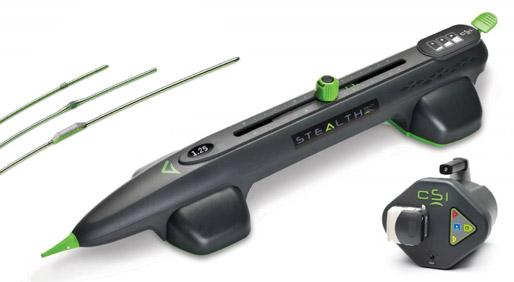
May 29, 2013 — Cardiovascular Systems Inc. (CSI) has presented 30-day results from its ORBIT II clinical study of coronary artery disease.
ORBIT II is evaluating the safety and effectiveness of the company’s orbital atherectomy technology in treating patients with severely calcified coronary lesions. This is the first Investigational Device Exemption study to evaluate this problematic subset of patients. CSI completed ORBIT II enrollment of 443 patients at 49 U.S. medical centers in November 2012 and submitted its Premarket Approval application to the U.S. Food and Drug Administration (FDA) on March 15, 2013.
Jeffrey Chambers, M.D., of Metropolitan Heart and Vascular Institute, Minneapolis, Minn., highlighted new data showing that 92.8 percent of patients were free from severe angiographic complications at 30 days. Additionally, core lab assessed final procedure residual stenosis was 4.7 percent.
“Patients who suffer from severely calcified coronary lesions are one of the toughest-to-treat populations, and 30-day ORBIT II results demonstrate that CSI’s orbital atherectomy technology may be a practical treatment option,” Chambers said. “Patients with moderate-to-severe calcium are more likely to experience major adverse coronary events (MACE), or even death. To have a potential solution for this problem is exciting.”
Chambers said 30-day data showed the ORBIT II trial met primary endpoints treating patient population in which 99.3 percent of subjects had severely calcified lesions. The 30-day freedom from MACE rate was 89.8 percent and the procedural success of 89.1 percent (including in-hospital MACE).
For more information: www.csi360.com


 January 05, 2026
January 05, 2026 









